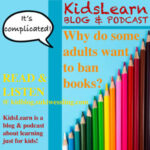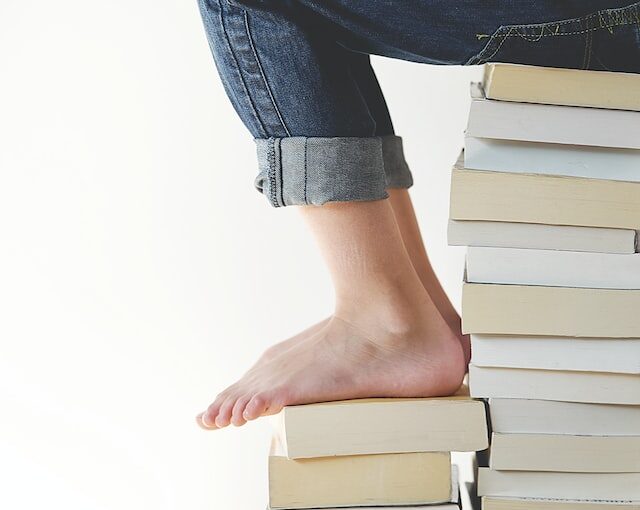
I assigned the book King and the Dragonflies to my students, but in some places they might not be able to get this book from their school library, or maybe even their public library. Why?
This is a complicated question! The people who want books banned (such as parents and politicians) might have a different opinion from the people who are told to ban them (such as librarians, school administrators, and teachers). People who want to ban books certainly have a different opinion from the people who advocate allowing kids to read freely.
But we can usual break down book banning into a few overlapping considerations:
1. Some adults want to shield kids from difficult subjects

There are many subjects that adults may think kids aren’t ready to handle. Those subjects can range from topics that every person experiences, such as death, to those that only some people experience, such as racism.
The argument for shielding kids from difficult subjects is that not all kids are ready to learn about the more difficult details of life.
The argument for letting kids explore difficult subjects is that eventually all kids will come up against these issues and well-written fiction helps them understand and process them.
2. Some adults believe that some ideas are actively harmful to kids
Every family makes choices about what they expose their children to, and in a society that’s complex like ours, there are many different choices that families make. Sometimes these choices have to do with religion or politics, other times with the community the family lives in. Some families believe that if kids are exposed to ideas the family disagrees with, it will influence their kids. Some ideas that parents may consider actively harmful include learning about gender and sex variance, different opinions about race or religion, and accurate depictions of historical events.
The argument for keeping these ideas from kids is that if the kids aren’t exposed to them, they won’t be influenced by them.
The argument for letting kids explore ideas is that kids should know the truth in an age-appropriate way, and reading a book won’t change who the child is.
3. Some adults have been influenced by altered views of history and reality and want to keep kids from learning other ideas, opinions, and interpretations
This is the hardest one to hear, but unfortunately, there are adults who believe lies about history, our society, religions, and other people. These adults don’t want their children exposed to the truth, sometimes because they fear it will turn the kids against them or turn the kids against their social or religious group.
An example

The book King and the Dragonflies is about a boy, King, whose brother dies, which is a hard subject. King is Black and also suspects that he is gay, which is something his brother made him feel ashamed of. And King’s friend is abused by his parent.
These are hard topics. My students who are not Black might discover discomfort at reading about the life of someone who is marginalized. My students whose families disapprove of homosexuality might believe that King’s brother was right to shame him about his feelings. Child abuse is horrifying. And the death of a sibling is a very sad reality that, thank goodness, is relatively rare in the modern world.
But the fact is, this is a lovely book that helps kids navigate the difficult subjects they face in their own lives. Even if they don’t know any rural Black people, they will empathize with King. And even if they agree with their family and disapprove of homosexuality, they will meet LGBTQ people everywhere, because these are natural variations seen in many species. They may in fact have these feelings themselves, and knowing that other kids go through the same feelings can help them. And despite what anyone says, reading about a gay kid won’t turn anyone gay!
A hard truth about book banning

In every modern society, when the people in power have banned others from reading books, the bans have led to other restrictions. Usually these restrictions are aimed at people with less power in the society. Once marginalized people’s voices are silenced, it is easier for a society to further marginalize them.
As you can tell, I believe that keeping children from reading age-appropriate books about any subject is not a good choice either for families or for schools, communities, and governments. I don’t believe that families should fear that reading a book will change their child’s fundamental values, which come from a complex mix of their families, their communities, and the person they are inside.
Finally, because the current bans are so clearly aimed at books that show the experiences of marginalized people—whether because of race, gender, sexual orientation, or socioeconomic class—it is clear to me that allowing book bans is just the first step in further marginalization.
Should you read banned books?
I not only let my own children and my students read books that have been banned—I urge them to. Every important novel ever written, whether for adults or children, has poked someone in an uncomfortable place. And if the uncomfortable people are those in power, they might try to ban the books. So a book that has been banned is often one that we should seek out. If it has made someone that uncomfortable, it may be worth reading.
But it’s also important to talk it over with your parents and find out why they don’t want you to read it. Your parents know and love you, and they may be right that you aren’t ready to learn about something, or maybe they read the book and they felt it would be too upsetting for you at this time. If they don’t want you to read a book, ask them why and give good thought to their reasons. Healthy families have healthy discussions…even when they’re uncomfortable.
Happy reading!
Photo by Gaelle Marcel on Unsplash.
